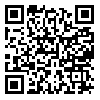Background: Since the self -medication it can make an important problem for the individual and society. Especially in young children due to the fact that the development were double importance , the aim of this study was to measure the theoretical constructs theory of planned behavior model in behavior has been investigated.
Methods: This is an analytical and cross-sectional study that was carried out on 231 mothers of children under 6 years of attending urban health centers , city Azadshahr . Sampling performed as cluster in 2014. Data collection , via questionnaire , including information and construct theory of planned behavior is that attitudes , subjective norms , perceived behavioral control and behavioral intention and performance was reliability , validity and reliability , before the study was conducted and data finallay analyzed through SPSS/22.
Result: Based on finding the mean and standard deviation of knowledge (61.31±16.82), attitude (74.13±11.23), subjective norm (72.74±9.1), perceived behavioral control (75.74±9.9), behavioral intention (85.32±11.82), practice (85.84±12.89) observed. The direct and significant correlation was observed between practice and attitude (p=0.019, r-0.15). Between attitudes and other constructs were significantly correlated with performance (p<0.05).
Conclusion: The results of this study the direct correlation between attitude and behavior it is proposed to amend the design of self- medication interventions emphasizing positive attitude and the consequences of maternal behavior and negative consequences caused by self-medication in children be considered .
Received: 2015/03/13 | Accepted: 2015/04/26 | Published: 2015/07/11
| Rights and permissions | |
 |
This work is licensed under a Creative Commons Attribution-NonCommercial 4.0 International License. |


